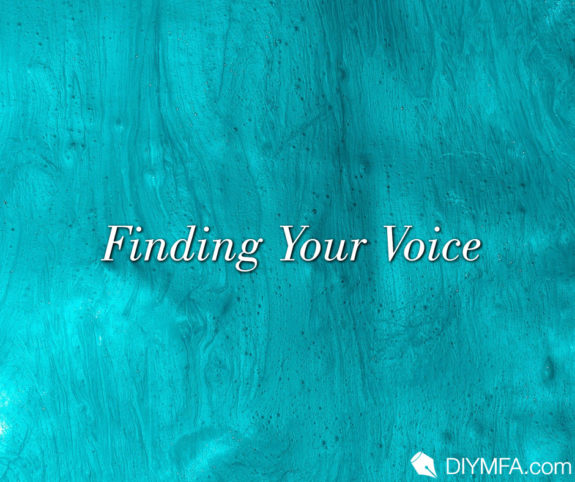I’m often asked how I got published. I’ve given a lot of to-the-point answers as well as longer explanations that focus on hard work, determination, and luck. The more I think about my eight-year road-to-publication, the more I’m certain writers who succeed do something pivotal during the process of drafting, revising, querying, and submitting. They find their voice. This is how as a writer can go about finding your voice.
Voice is a story element that no one can quite put their finger on. Readers either connect with our voice or they don’t. There isn’t much in between. While at SCBWI LA summer conference in 2014, I listened to a panel of reputable, high-powered agents discuss what they liked and disliked about manuscript submissions. When the moderator asked them about voice, their clear-cut advice suddenly became vague. They all agreed voice isn’t something they can teach. Voice is there or it isn’t. So how do you go about finding your voice?
Practice at writing.
You don’t have to write every day, but you should set goals and meet them. Whether they be daily, weekly, or monthly, write when you can and meet your self-imposed deadlines. The more you write, the more experience you have honing your voice. You don’t have to always finish what you start. Not every story will sing to you. Try to finish drafting the ones that do resonate. Practice every stage of your process, including revisions and line edits. Finding your voice will happen as you become more in tune with your methods for storytelling.
Read many genres.
Finding your voice can come from researching books that do voice well. Usually these books connect with a wide audience or serve their niche in the market. The main character doesn’t necessarily need to be a mouthy teenager or have a Scottish accent or drawl. Their voices should feel relatable, accessible, and build the narrative. If you write chapter books, your voice will be different than if you write YA contemporary. Compare and contrast. Get a feel for where you think your own voice fits in the market. Be mindful that voice is also about sentence and paragraph structure, word choice, point of view, similes, purple prose, etc. What do you do well? What could you improve?
Try different genres.
Before I found my sweet spot in fantasy, I wrote a YA paranormal, a YA contemporary, a YA thriller, and a MG fantasy. My middle-grade received a lot of attention from agents, but every one of them said my voice was “off.” I had the genre right but not the readership category. Not to say I won’t switch genres in the future, but it’s usually best to settle upon one until you’re established in the marketplace and build readership.
Get feedback from critique partners, betas, and agents.
Listen to your early readers. If they aren’t connecting with your main character, you might have an issue with voice. Perhaps you character should be younger or older, or your storytelling is better suited for sci-fi than fantasy. Whatever feedback you get, listen before you discard it. Thoughtful, constructive critiques can steer us toward honing our voice.
Find your theme.
We all have causes that are close to our heart. These beliefs and unique viewpoints sneak into our writing. We aren’t out to teach or preach. Our upbringing and how we view the world naturally leaks into our stories. These themes connect us with readers who share similar ideals. Your theme may be general, such as death in the Harry Potter series, or more plot-focused, such as gender equality in The Handmaid’s Tale. Always be thinking of ways to insert your authentic self into your story. Whatever is near and dear to your heart is worth exploring. You don’t have to be a bad guy to write one, but some piece of you is that villain. Do you know what piece it is? That’s part of voice.
Find your passion.
Do you like to create complex magic systems? Cozy mysteries? Fast-paced thrillers? Slow-burn romances? Write what makes you happy and what draws you back to your keyboard time and time again. Writing isn’t easy. It’s even harder when you’re ambivalent about what you’re creating.
As you can see, voice belongs to the individual. Honing it takes a combination of practice, reading, open-mindedness, and understanding why you write in the first place. We all have something to share. Don’t write for the market or to please your critique partners. Be authentic. Your voice will emerge, and readers will connect with your work.

Emily R. King is the author of the Hundredth Queen series, as well as Before the Broken Star, Into the Hourglass, and Everafter Song in the Evermore Chronicles. Her latest novel, WINGS OF FURY, will be released March 1, 2021, the first in the Wings of Fury duology. The second book, Crown of Cinders, will be released October 5, 2021.
Born in Canada and raised in the United States, she is a shark advocate, a consumer of gummy bears, and an islander at heart, but her greatest interests are her children and three cantankerous cats.
For more information, visit her at www.emilyrking.com.







